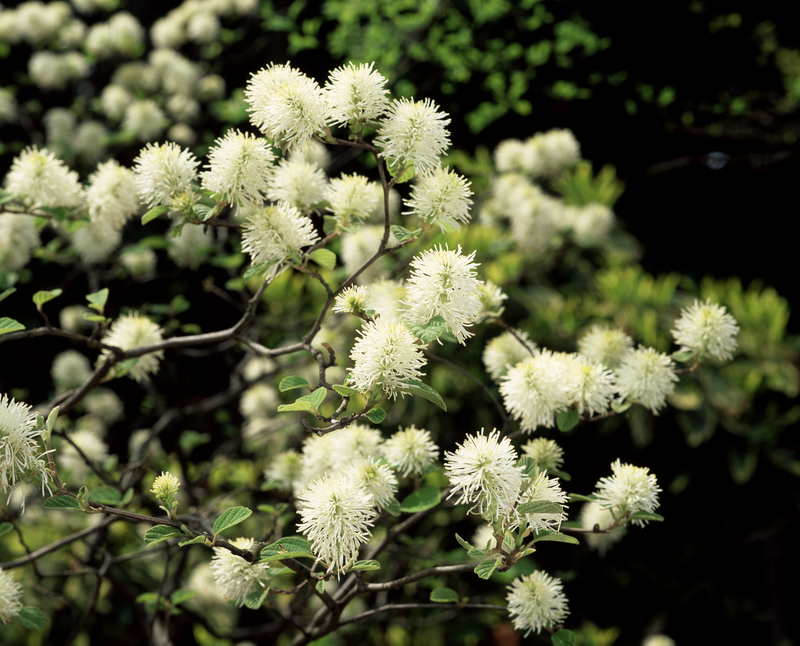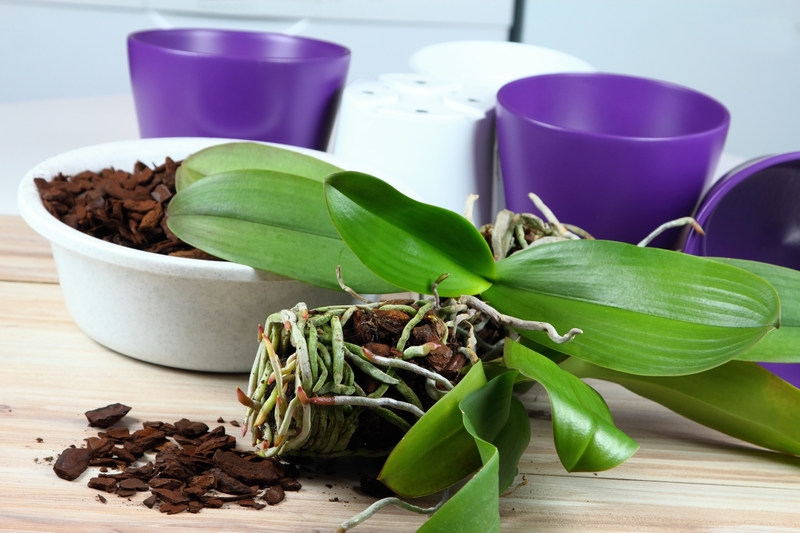Innovative Ideas for a Fun and Safe Children's Garden
Posted on 22/08/2025
Innovative Ideas for a Fun and Safe Children's Garden
Every parent dreams of nurturing children who are curious, imaginative, and connected to nature. One of the best ways to foster these qualities is by creating a fun and safe children's garden. With innovative planning and a focus on safety, your backyard can become a magical haven where kids play, learn, and grow. In this comprehensive guide, you'll discover creative and unique ways to develop a child-friendly garden that prioritizes fun, safety, and hands-on learning.
Why Create a Children's Garden?
Children's gardens offer more than just a space to play. They encourage kids to explore nature, develop fine motor skills, and even learn basic science concepts. A thoughtfully designed and safe children's garden can spark a lifelong love for the outdoors while providing a space for the whole family to bond.
- Physical activity: Engaging in garden activities promotes exercise and healthy development.
- Creativity: Gardens offer endless opportunities for imaginative play and artistic expression.
- Learning experiences: Kids can learn about plants, insects, weather, and sustainability in their own backyard.
- Emotional well-being: Studies show that spending time in nature reduces stress and improves mood in children.

Design Principles for a Safe and Fun Children's Garden
Before diving into innovative ideas for children's gardens, it's crucial to set some safety and design guidelines. These simple principles ensure your garden is both an enjoyable and secure place for all kids.
- Visibility and supervision: Ensure clear sightlines throughout the garden so you can keep an eye on children while they play.
- Safe materials: Choose non-toxic, durable, and smooth-surfaced materials for paths, fences, and play structures.
- Separate areas: Designate specific zones for quiet play, active games, and gardening to cater to different moods and activities.
- Accessibility: Design paths wide enough for strollers, wheelchairs, or mobility aids, making your garden inclusive.
- Sun and shade: Incorporate shaded areas with canopies, pergolas, or trees to protect against sun exposure.
Top 10 Innovative Ideas for a Fun and Safe Children's Garden
1. Sensory Paths and Walkways
Sensory paths are creative walkways made with various materials like smooth pebbles, wood slices, sand, and mulch. These paths stimulate senses and improve balance. Encourage children to walk barefoot, fostering a tangible connection with natural textures.
- Alternate surfaces such as grass, bark chips, and round stones
- Incorporate stepping stones in fun shapes and colors
- Add fragrant herbs like thyme or chamomile along the edges
2. Edible Gardens for Kids
There's no joy quite like picking and tasting food you've grown yourself. Planting a kid-friendly edible garden is one of the best interactive garden ideas.
- Create rainbow-themed beds with colorful veggies like peppers, carrots, and lettuce
- Grow berries, cherry tomatoes, snap peas, or strawberries in accessible raised beds
- Let kids decorate plant markers for a personal touch
Tip: Always use organic practices and avoid chemical pesticides or fertilizers to keep your children's edible garden safe.
3. Nature-Inspired Play Structures
Construct play spaces using natural materials to blend fun with safety and environmental harmony. These structures spark imagination and are much safer than metallic or plastic alternatives.
- Willow tunnel hideaways or living willow domes
- Mini log cabin or wooden fort built with smooth, sanded timber
- Climbing frames made of sturdy logs or ropes secured to trees
Ensure all structures are regularly inspected and free from splinters or sharp edges.
4. Pollinator and Butterfly Gardens
Introduce children to the wonders of pollinators by dedicating a section of the garden to bee and butterfly-friendly plants.
- Plant native wildflowers, milkweed, and lavender
- Build simple insect hotels using bamboo, pinecones, and twigs
- Include a butterfly puddling station with shallow dishes and stones
Observing pollinators teaches respect for nature and the importance of biodiversity while adding vibrant beauty to any child's garden space.
5. Water Play Zones
Water has a magical effect on children and offers endless play and learning possibilities. For a safe water play area:
- Install a shallow, recirculating stream feature or a hand water pump
- Set up splash pads with non-slip surfaces
- Encourage water experiments with simple DIY rain chains or water walls
Always supervise children around water and avoid deep ponds for safety.
6. Garden Art Studios
Inspire creativity with an outdoor art station. Add a weatherproof chalkboard wall, mural space, or easels for painting. Hang wind chimes, mosaics, or sculptures crafted from recycled materials for a splash of color and sound.
- Provide natural loose parts like sticks, leaves, and stones for crafty explorations
- Let children build fairy gardens or miniature landscapes
These art corners offer meaningful outdoor time even on rainy days.
7. Safe Climbing and Exploration Areas
Give kids a sense of adventure with dedicated exploration zones. Incorporate:
- Low tree stumps or stepping logs for balance play
- Simple rock scrambles with rounded, stable boulders
- Secure rope swings hanging from strong tree branches (with cushioned ground cover below)
Ensure all surfaces are soft, such as mulch or rubber, to prevent injury from falls.
8. Wildlife Observation Hides
Turn your children's garden into a mini wildlife sanctuary! Build small observation hides or camouflaged benches where children can quietly watch birds, squirrels, and insects.
- Hang bird feeders, squirrel-proof seed dispensers, or nesting boxes
- Install a small bug hotel or hedgehog home in a cozy garden corner
Keep a journal or camera handy for recording backyard wildlife discoveries.
9. Storybook Pathways and Secret Spaces
Make the garden whimsical with winding paths leading to hidden nooks or reading corners. Use archways covered with flowering vines, small trellises, and curtained tents to create magic.
- Add outdoor beanbags, a weatherproof library box, or colorful picnic mats for quiet reading
- Scatter story stones (painted rocks with images) along the trails
These child-sized secret gardens fuel imagination and provide safe, serene places to rest.
10. Hands-On Learning Stations
Designate corners of the garden for interactive education--perfect for home-schooling or after-school fun.
- Weather station tools (rain gauges, wind socks, thermometers)
- Compost pile or worm farm for lessons on recycling and soil health
- DIY bug identification kits, magnifying glasses, and nature journals
Hands-on learning empowers children to become young scientists while making outdoor playtime more educational.
Safety First: Top Tips for a Secure Children's Garden
- Choose non-toxic plants (avoid nightshade, datura, or foxglove)
- Cover ponds or water features with mesh when not in use
- Fencing should be sturdy and tall enough to prevent escapes
- Clear paths of tripping hazards; ensure regular maintenance of tools and structures
- Provide sun hats, sunscreen, and refillable water bottles for outdoor play
- Store gardening tools safely out of reach and teach children proper usage
Tip: Involve your child in safety checks to teach them awareness and responsibility.

Seasonal Activities to Keep the Garden Fresh and Exciting
A children's garden is never static. Keep young gardeners engaged all year with rotating activities:
- Spring: Seed starting, butterfly hunting, making birdhouses
- Summer: Harvest vegetables, outdoor painting, water play
- Autumn: Collect leaves, plant bulbs, make scarecrows
- Winter: Feed wildlife, build little shelters, twig crafts
Regularly update features like art displays, learning stations, or edible plantings for a garden that surprises and delights throughout the year.
Low-Maintenance Innovations for Busy Families
Not all families have time for daily gardening. Here are a few low-maintenance innovations for your child-friendly garden:
- Self-watering planter boxes
- Ground covers like creeping thyme or clover instead of high-maintenance grass
- Automatic solar lights for evening play
- Mulched areas to suppress weeds and retain moisture
Getting Your Child Involved: Make It Their Garden
The most fun and safe children's gardens are those that reflect kids' personalities. Involve your children from the planning stage:
- Let them choose favorite plants, colors, and decorations
- Assign their own garden patch or planter to care for
- Encourage garden-themed art projects or nature crafts
- Ask for their input on play zones, structures, and new features
This sense of ownership inspires pride and respect, making kids more eager to use and care for their garden space.
Conclusion: Growing Memories in a Safe and Fun Garden
Creating a safe, creative, and enjoyable children's garden is one of the most rewarding projects for any family. With these innovative ideas for a children's garden, you can cultivate a space where kids not only play but also develop a deep appreciation for nature, learn valuable life skills, and make memories that last a lifetime.
Start small, experiment, and let your children's imaginations lead the way. Your backyard will soon blossom into a paradise of fun, learning, and safety, enjoyed by young and old alike.
Latest Posts
Unlock Your Green Thumb: 9 Fundamental Tips for New Gardeners
Reviving Soil Health with Organic Waste Transformation
Exploring the art of growing plants in pots

